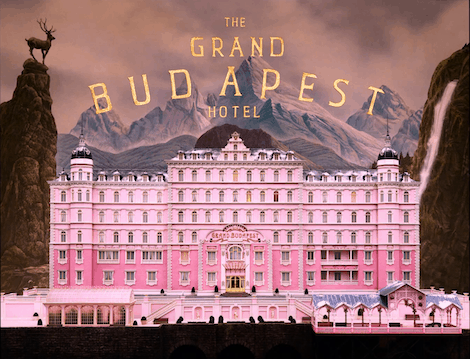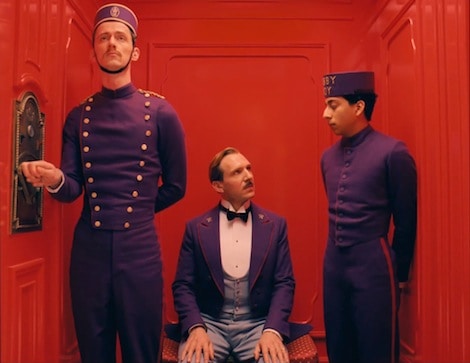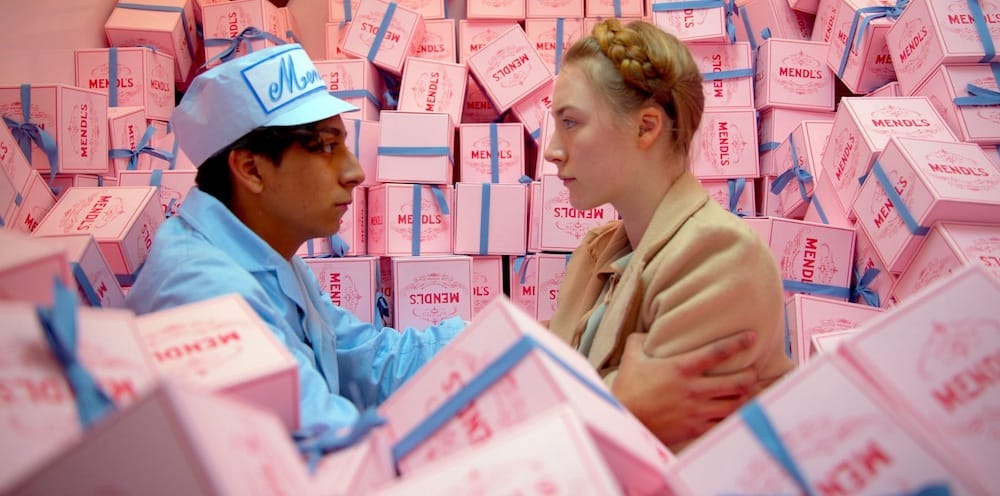At first glance, Wes Anderson’s The Grand Budapest Hotel is a charming little film. Sure, it’s not much different from say, his last seven or so films, but nice to watch anyways. The quirky humour, the slightly off-kilter shots, the imaginative contraptions — the whole package factors into Anderson’s latest joyride.
Anderson is, without a doubt, an important director within twenty-first century cinema. His movies are no longer subjected to a cult following consisting of strictly Anderson movie-lovers — now they are widely accepted as big budget, Hollywood-sized films for everyone to enjoy. However, despite the aesthetic satisfaction that we get out of Wes Anderson films, there are still some undeniably problematic issues that are strung along with this visually pleasing piece of work.

The first thing I found to complain about in The Grand Budapest Hotel was the odd choice of casting. Despite mostly casting middle-aged white men as the important figures in this movie (see: Ralph Fiennes, Edward Norton, Adrien Brody, Willem Dafoe, Jude Law, Jeff Goldblum, and so on), the real surprise came when we were introduced to Zero Moustafa, the character played by F. Murray Abraham (previously in Inside Llweyn Davis and Amadeus).
Abraham, also an older white man, is the humble narrator of The Grand Budapest Hotel’s story, explaining to Jude Law’s character how the place came to be. As the story unravels, we learn that Moustafa is in fact the protagonist of this film, telling us the story of his younger self as the lobby-boy for the legendary concierge, Mr. Gustave (Ralph Fiennes). The problem here is that the younger version of himself, who we get to see more than we actually see Abraham throughout the film, is a brown-skinned teenage boy of Indian decent (played by Tony Revolori, who in real life is of Guatemalan descent).
After spending most of the movie watching the adventures of this younger version of Zero, seeing the pale face of F. Murray Abraham, who, with a twinkle in his eye claims that the darker skinned boy we just saw was in fact him, comes across as completely nonsensical. If nothing else, this hiccup serves as a severe continuity mishap, and one that really should have been fixed beforehand.

In addition to the odd choice of casting, The Grand Budapest Hotel definitely contains other debatable filmic choices. Going into the film with the understanding that it was to be set in Eastern Europe, where the thick Hungarian accent reigns supreme, I couldn’t help but be a tad surprised to see Edward Norton pop up out of nowhere and introduce himself as “Inspector Henckels” in possibly the most nasally American accent imaginable. As usual, the film was lacking in interesting female characters with motivations other than making their male counterparts happy, and I couldn’t help but find Bill Murray’s two-minute cameo slightly disappointing.
There is no doubt that The Grand Budapest Hotel can keep you entertained from start to finish. The movie is filled with action, one-liners, and everything you would expect from any Wes Anderson film — no more, no less. For Wes Anderson film lovers: you will undoubtedly be entertained. But maybe, just maybe, Anderson could open up his mind to the idea of diversity in his future films.


